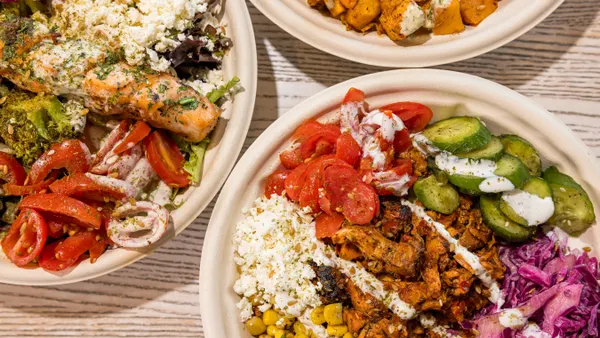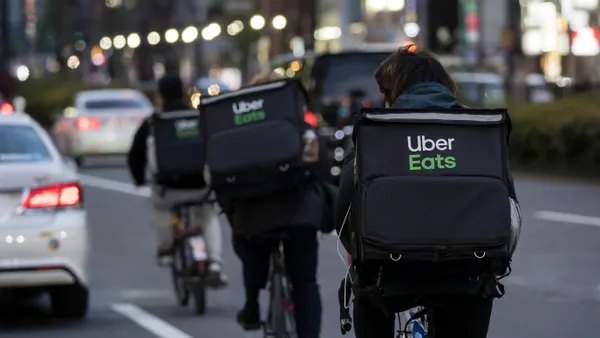Dive Brief:
- Shares of Chinese delivery giant Meituan Dianping have dropped more than 20% since its IPO in September, as the company drives sales in exchange for profit in a fight over market share with Alibaba, according to Bloomberg.
- Alex Wong, Ample Capital director, told Bloomberg that intense demand for delivery is too intense for only two companies to compete in this market, and believes this will affect earnings for the foreseeable future.
- McKinsey & Company estimates that the global online food delivery market will grow by 15% annually each year until 2020.
Dive Insight:
Unlike the crowded U.S. and European food delivery markets, China’s food delivery space is dominated by just two players that service more than 1,300 cities. According to Will Lin, co-founder of Los Angeles-based Asian food delivery service Gesoo, e-commerce competition is fierce in China, so delivery companies are likely to have more success operating elsewhere. That’s because those two delivery companies are backed by deep-pocketed Alibaba, with its Ele.me service, and Tencent, with its Meituan service.
Both of these companies are able to throw a lot of money toward significant discounts to incentivize users. It will be interesting to see if other delivery players will be willing to embrace this challenge and expand in the market, especially since China’s high population density can be a major advantage for delivery.
Such population density is the reason India is experiencing staggering home delivery growth. According to research firm RedSeer, India’s online food delivery market grew at 150% in 2016 alone. Google jumped into India last year with its Areo aggregator app. Uber Eats followed in the market shortly thereafter.
Uber Eats CEO Dara Khosrowshahi said he expects his company to become the largest food delivery company in the world this year and, if the rumors are true that Uber is looking to acquire UK startup Deliveroo, there’s no reason to doubt this prediction. But, like Meituan, Khosrowshahi said Uber Eats struggles with profitability, noting that the food delivery model is “tuned for growth, not efficiency.” Uber Eats has embraced a “virtual restaurant” model in the hopes of turning a profit.
Meanwhile, Meituan is paring down its ride-hailing and bike sharing services to improve its operating efficiency and hone its focus on food delivery. Food delivery generated nearly 59% of the company’s operating income in the third quarter of 2018.
It's a bit of a conundrum to have the demand there, but not the profits, but it is starting to affect the competitive set. Last week, Amazon shut down its delivery service in the U.K. Until delivery companies can figure out the profitability piece, this likely won't be the last delivery casualty.











